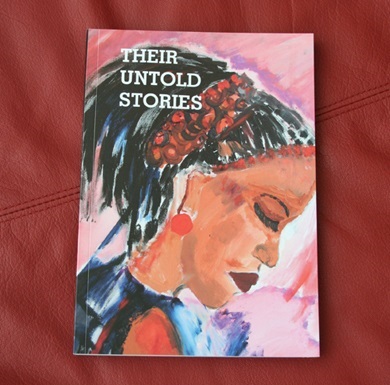About Us
Our dedicated staff are here to help. The issues they support service users with are varied and often complex, we help people to navigate the challenging systems and understand their rights within them.
About Us
Our dedicated staff are here to help. The issues they support service users with are varied and often complex, we help people to navigate the challenging systems and understand their rights within them.
How we began
Granby Community Mental Health Group established Mary Seacole House in 1991 to address the lack of understanding around Black Mental Health. At that time people experiencing racial inequalities who were diagnosed with mental illness did not have facilities in the community to support them and they often ended up being sectioned and placed far away from their families and communities. Many of them were misdiagnosed and unfairly treated.
Mary Seacole House was set up to provide a mental health resource in the area where most marginalised communities lived. The people who campaigned to set up Mary Seacole House were a mixture of professionals, family members and people living in the community aware of the lack of mental health support in the area. Protasia Torkington, Yvonne Asije-Rooney & Leonie Nash played a pivitol role and fought hard to secure the funding needed in the early developments of Mary Seacole House. Before Mary Seacole House was set up there were community mental health facilities but people from diverse cultures did not use them because of the racism from both staff and patients.
After a long struggle, funding was achieved from Liverpool City Council, but by this time many key people had other commitments. In the course of time Leonie and her family moved South, leaving Yvonne and Protasia as co-founders and Directors of Mary Seacole House. Protasia was a health researcher when the idea of Mary Seacole House was developed and when it started functioning she moved on to a senior lecturer role at Liverpool Hope University and later became a Professor there. Yvonne was a Senior Social Worker in Children’s Services, they were left as the main protagonists who had the very important task of setting up the charity and working out how it was going to make an impact.
Mary Seacole House opened its doors on 15th April 1991 after renovating 91 Upper Parliament Street from a derelict building to a welcoming centre. The charity is located in the heart of the community, and now operates from our new accessible building (The Old NatWest Bank) in Berkley Place, Toxteth, which is in the Princess Park Ward of Liverpool. The charity was set up to provide support services to local people who are experiencing mental health problems. Our service users are mainly drawn from this area, but we now also deliver services to people from across Merseyside. Mary Seacole House has maintained a track record of delivering community mental health services for over 30 years.
Read more about us in this Case study: Saluting Our Sisters at Mary Seacole House.

Our Founders
Emeritus Professor Ntombenhle Protasia Khoti Torkington & Yvonne Asije-Rooney. (Yvonne passed away peacefully at home on Sunday 16th January 2022)

Our Motto
‘The Same Rights, Different Needs’ We believe that every individual has the right to access services available to them, we help services to understand that every individual is just that, an individual who has varying levels of support needs. We advocate for fair and just treatment for communities facing racial inequalities.
Mary Seacole
In her lifetime Mary Jane Grant Seacole became the most respected black woman in the British Empire. She was celebrated for the way in which she cared for the sick and wounded during the Crimean Wars. Born in Jamaica during slavery in 1805 of a Creole mother and a Scottish father she created her own role – centre stage – and in the heart of the battle.
“Auntie Seacole” or “the Mother of the Regiment” as she was known, risked her life on the frontline at the Siege of Sebastapol, caring for the casualties of the British Army. She saved thousands of men from the dangers of cholera, dysentery and jaundice. The soldiers loved her because of her ample medical knowledge and skills, together with her caring bedside manner. Granby Community Mental Health Group made her their patron in honour of those who continue to need her expertise and support. It was felt appropriate to name our charity after Mary Seacole and to acknowledge her rightful place in history.

Mary Seacole
“Auntie Seacole” or “the Mother of the Regiment” as she was known, risked her life on the frontline at the Siege of Sebastapol, caring for the casualties of the British Army. She saved thousands of men from the dangers of cholera, dysentery and jaundice. The soldiers loved her because of her ample medical knowledge and skills, together with her caring bedside manner. Granby Community Mental Health Group made her their patron in honour of those who continue to need her expertise and support. It was felt appropriate to name our charity after Mary Seacole and to acknowledge her rightful place in history.

Their Untold Stories
“Their Untold Stories” was a book written by service users, staff and trustees and stands as a record of work from the past 20 years by Granby Community Mental Health Group, Mary Seacole House and The Advocacy Project. It provided an opportunity for people who used the services of the organisation to tell their life stories in their own words.
Some tell their stories through poetry and others find art the best medium to express themselves. A further important dimension of the book is that it gives members an opportunity to reflect on the services being provided for their well-being by both statutory and voluntary sectors. They identify their needs and suggest how these can best be met. The book concludes by drawing out some key themes and issues which need to be considered by those responsible for providing services, in particular, to black and racial minority communities with mental health needs.
A wider social issue that has been revealed in the stories is the strong link between child sexual abuse, physical abuse, Children’s Homes and mental illness. Although there are now systems in place, which are intended to protect children, those links remain strong as evidenced by the media coverage on the experiences of children some of whom die because of abuse.
The book featured in the Society section of the “Guardian” as well as in their website.
(Click the link to see the article, if you would like to purchase a copy of this book please get in touch with us)



